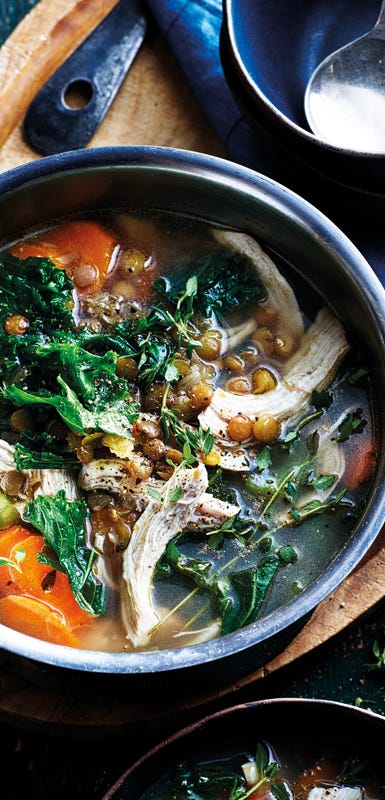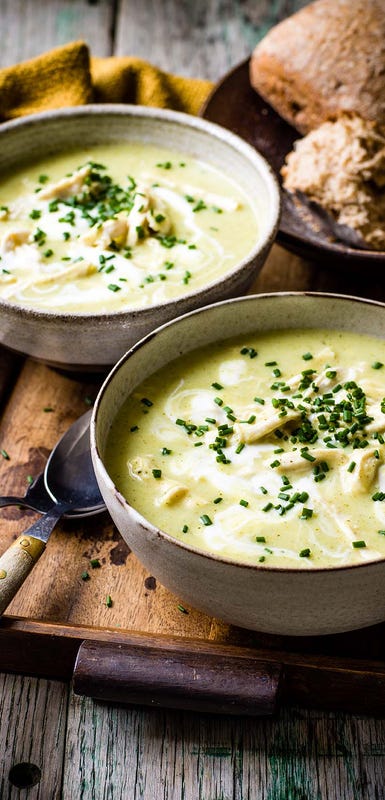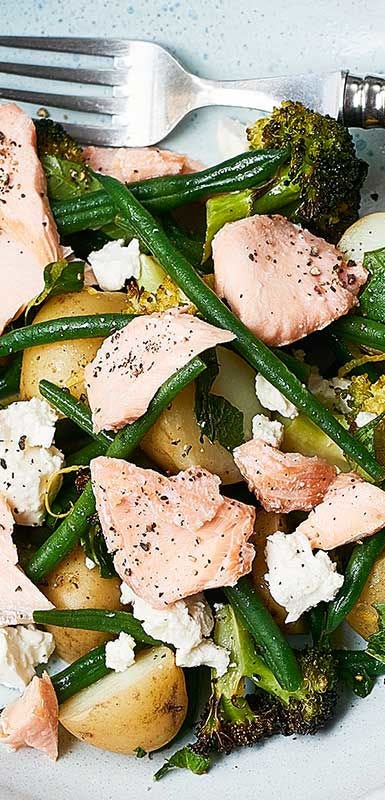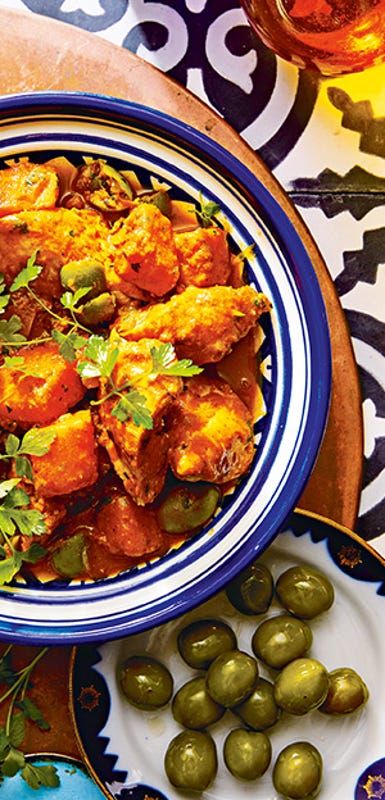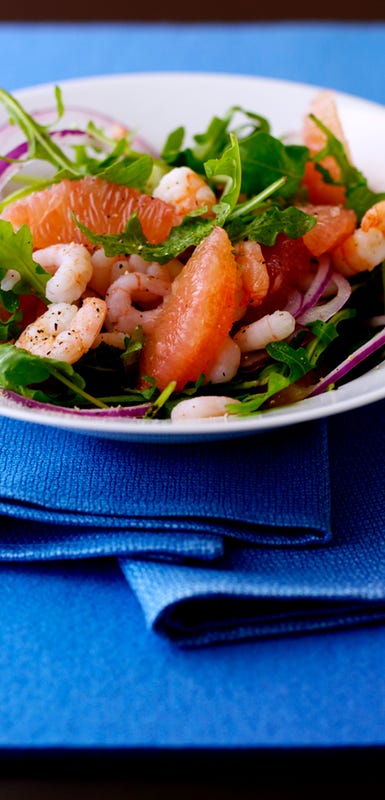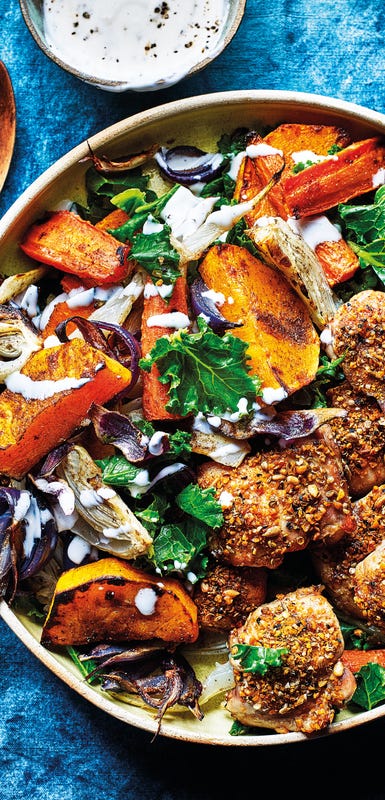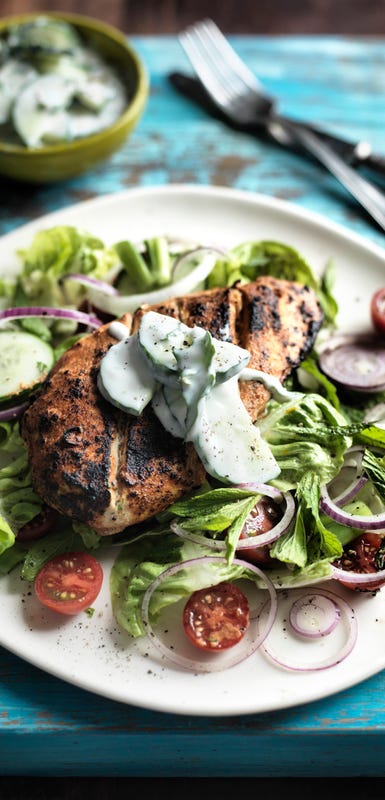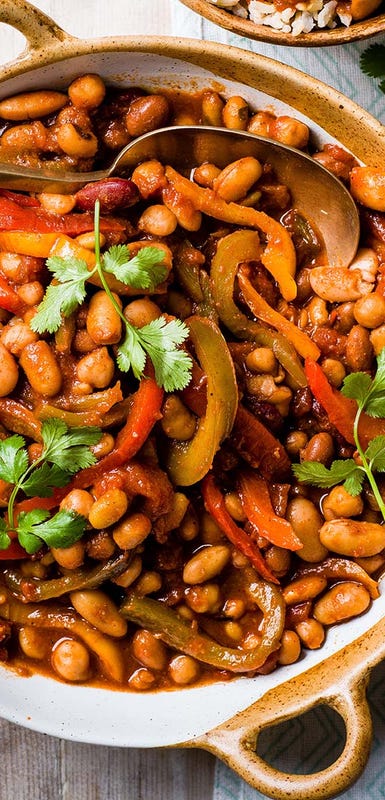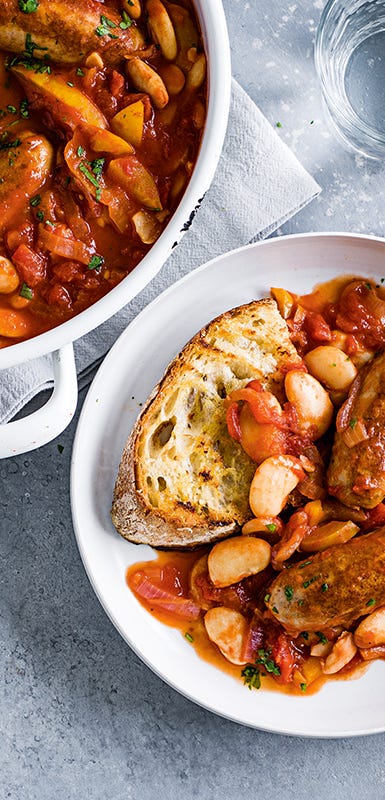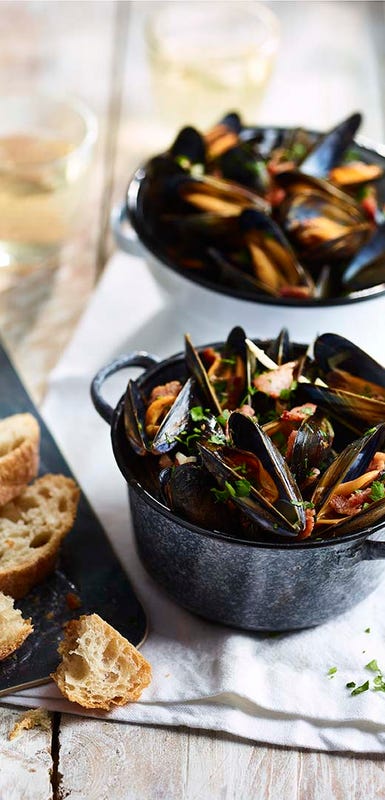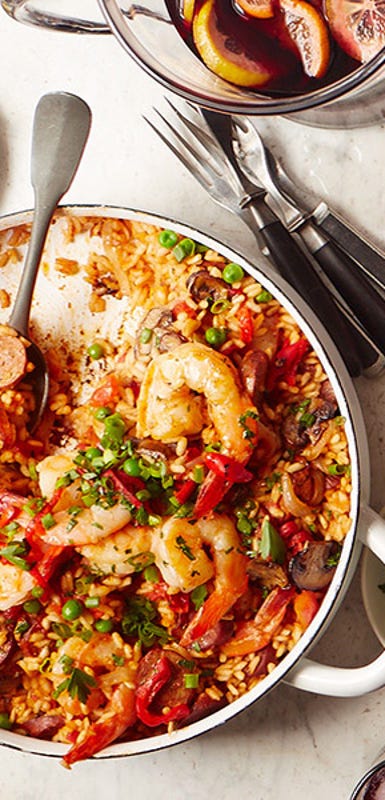Foods to boost your immune system


Why is it important to boost the immune system?
If you’ve long believed that Grandma’s chicken soup is a cure-all, you may not be far off: Whether you’re hoping to help fend off and/or cope with a cold, the flu, or another virus, certain foods play a role in a healthy immune system. While proper hygiene—i.e., washing your hands often and keeping them away from your nose, mouth, and eyes (which serve as pathways for germs to enter the body)—is the best defense against catching a contagious bug, here's what science has to say about supporting a healthy immune system with food. Read on to find out which foods you should include as part of a healthy pattern of eating, and discover delicious, Point®-friendly ways to enjoy them.
Foods to boost the immune system
1. Chicken soup
Tend to reach for a bowl of chicken soup whenever you feel run down? It’s no wonder: Chicken soup may provide a mild anti-inflammatory effect that appears to lessen the severity of cold symptoms, according to a 2000 study published in the peer-reviewed journal Chest. Researchers credit ingredients like veggies, which are rich in vitamins, minerals, and antioxidants, for helping to reduce inflammation. Although the jury is out on the ideal soup recipe and exactly how much soup to consume, researchers believe that simply sipping the warm liquid can help improve upper respiratory tract symptoms. So while you shouldn’t necessarily forgo cold medicine in favor of chicken soup, it can contribute to your get-well plan. Bonus: It serves up a dose of fluids and satisfying protein to both help you meet your nutrient needs and stay on track when you’re under the weather, says registered dietitian Jackie London, MS, WW’s head of nutrition and wellness.
Chicken soup recipes
Plagued by the sniffles? Try one of these veggie-packed, soothing chicken soup recipes:
2. Citrus fruits
Oranges, grapefruits, lemons, and limes are a great source of vitamin C, a potent antioxidant that plays a role in immune cell functioning (i.e., helps keep your immune system in good shape), according to a 2015 review article in Chemistry Central Journal. That said, peeling a single orange won’t do much to prevent you from getting sick or shorten the length of a cold. Developing a habit of eating a range of foods that contain vitamin C as well as a variety of antioxidants—like citrus fruits— can support overall health, according to a 2017 study review published in the journal Nutrients. Researchers also found that vitamin C deficiency is associated with impaired immunity and higher susceptibility to infections.
Another caveat: Eating an orange beats drinking a glass of orange juice, since fruit is higher than juice in fiber, antioxidants, phytonutrients, and prebiotics, all of which support health, London says.
Citrus recipes
Incorporate a range of citrus fruits into your meals with these delicious recipes:
3. Yogurt and other probiotics
The gastrointestinal tract and the trillions of bacteria that live there account for up to 60 percent of the entire immune system, says board-certified gastroenterologist Brittany Seminara, MD, who practices at Atrium Health in Charlotte, North Carolina.
Generally, the gut’s naturally-occuring bacteria aid in digestion and keep the lining of your gut healthy. However, medications, infections, illness, and other environmental factors (like what you eat) can disturb the balance of gut bacteria—one reason why it may be smart to consume beneficial bacteria known as probiotics, which are available as supplements or in foods like yogurt and fermented items like kefir, kimchi, miso, and sauerkraut. That said, research connecting probiotics and overall health is still new and evolving—particularly since there are so many different probiotic strains to look into. At this point, existing evidence suggests that probiotics are generally considered safe for consumption among healthy people. But take heed: The U.S. Food and Drug Administration (FDA) has yet to approve any probiotics for the prevention or treatment of any health condition.
On probiotic-containing dairy products in particular: While a common myth suggests that dairy increases mucus production and can do more harm than good when you’re already feeling under the weather, rest easy: Research suggests this isn’t true, London says.
Probiotics-rich recipes
Amp up your probiotic intake with these dishes:
4. Beans and other foods with prebiotic fiber
Fiber or carbohydrates that pass through the digestive tract to promote healthy digestion and elimination, is an essential part of a nutritious diet. Eating prebiotic fiber, a type that helps to feed the healthy bacteria found in your gut, may play a role in supporting immune system functioning. Foods containing prebiotic fiber include beans, onions, leeks, garlic, whole grains (including oats), cashews, soy, and fruits such as bananas.
Prebiotic fiber-rich recipes
Enjoy gut-friendly prebiotic fiber with these recipes:
5. Shellfish and other foods high in zinc
A nutrient that is essential for proper immune system functioning, zinc is found in a whole bunch of tasty foods including oysters (the best source of zinc per serving), mussels and other shellfish, yogurt, milk, poultry, red meat, beans, nuts, and whole grains. And while most people get enough zinc through diet, when you’re trying to out run a virus, supplementing with zinc (at least 75 mg per day) from the onset of a cold until it’s gone could help you feel better faster, according to a meta analysis of seven randomized controlled trials featuring 575 participants who’d been diagnosed with colds.
Zinc-rich recipes
Amp up your zinc intake with these zinc-infused meals:
The bottom line
If you really want to help the body maintain a healthy immune system, maintaining a diet rich in whole grains, fresh fruits and vegetables, lean meats, fish, eggs, and dairy year-round —particularly during cold and flu season—is vital Dr. Seminara says. It’s also worth repeating: Make sure to wash your hands properly (i.e., with soap for at least 20 seconds) and keep them away from your face; avoid others who are sick; and disinfect places or objects touched by many people (like door handles, phones, and keyboards) before using them. Paired with a balanced diet rich in essential nutrients, these habits can help you stay well.
--
Jessica DiGiacinto is an associate editor at WW. A health and wellness writer and editor based out of New York, she’s contributed to Popsugar, Bulletproof 360, and Galvanized Media, among other media outlets.

